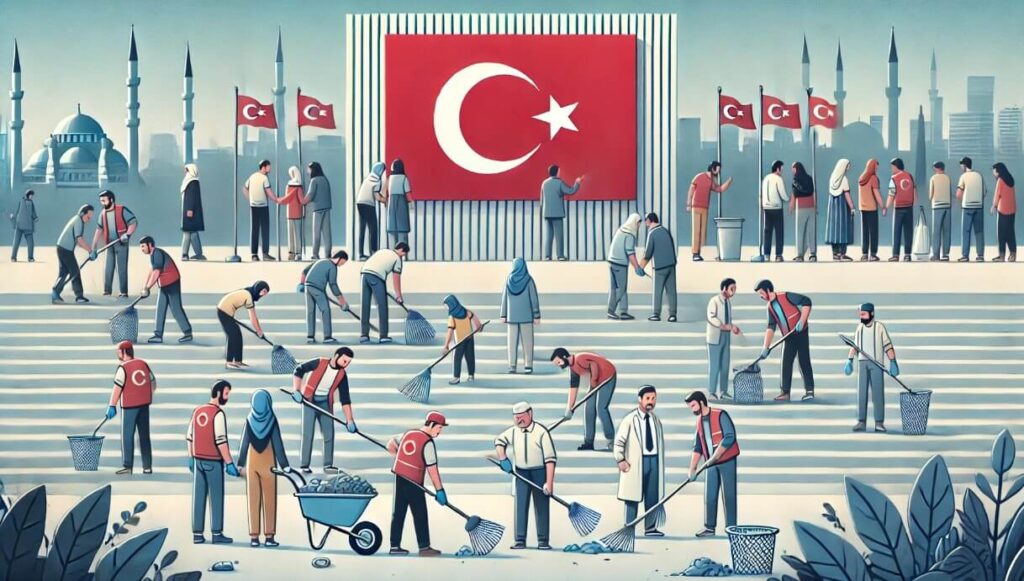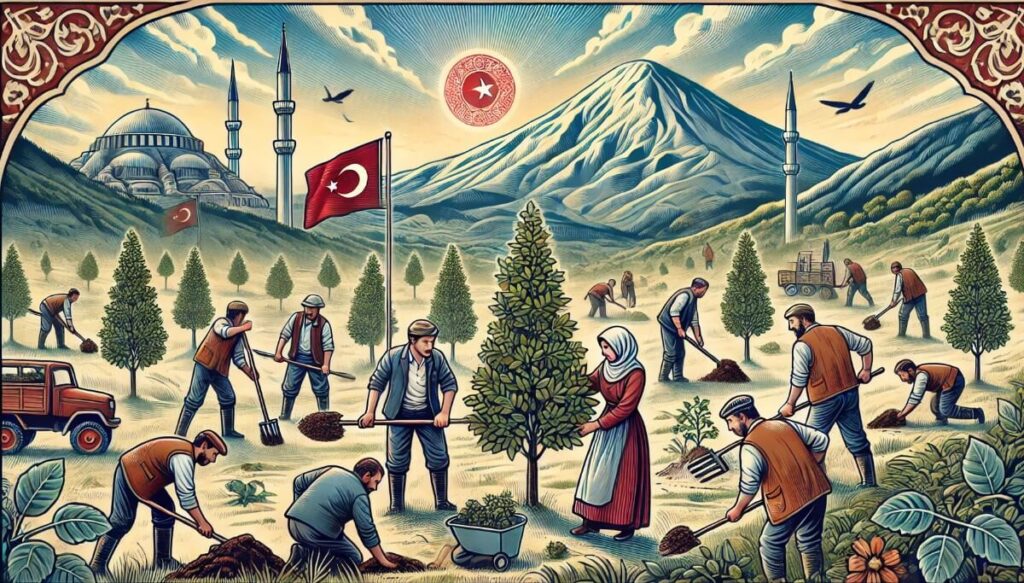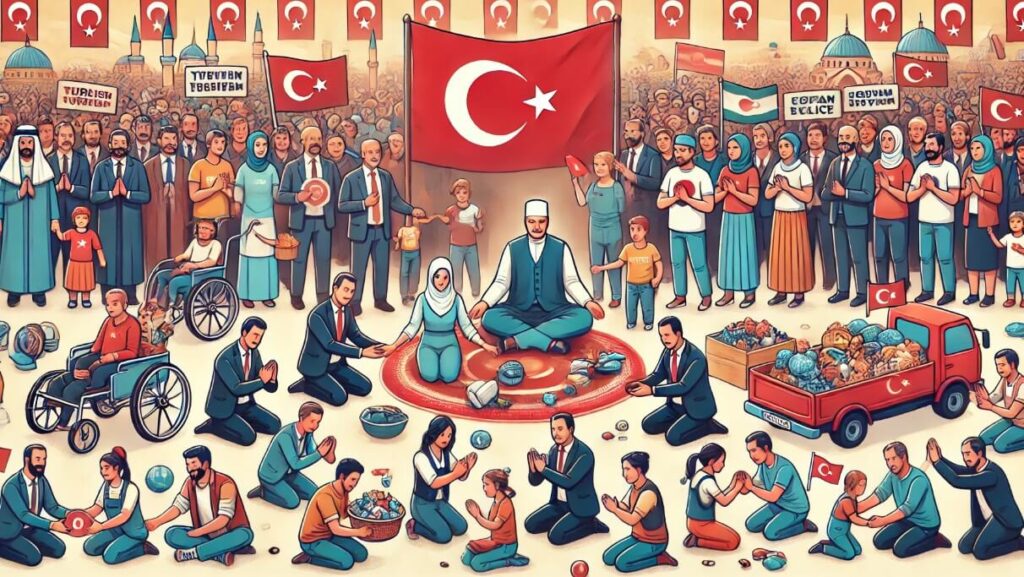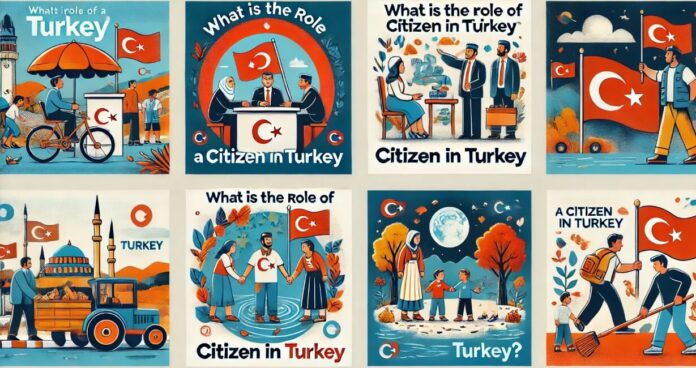The role of a citizen in Turkey is central to its democratic framework as well as the country’s socio-cultural fabric. As a country that links Europe and Asia, Turkey boasts of a unique combination of historical relevance, cultural variety and political systems. They are at the center of national identity building, governance and development. This article examines the responsibilities, rights and expectations of Turkish citizens while underscoring their invaluable contributions towards national growth.
Upholding Constitutional Principles in Turkey
The Turkish constitution provides the basis for governance in this nation. Each citizen is supposed to respect and uphold these principles which emphasize democracy, secularism and equality among others. By living according to such constitutional values, citizens contribute towards maintaining legal and political stability in the country.
Participating in Democratic Processes
A key factor of being a citizen in Turkey is actively participating in democratic processes. The right to vote for local and national elections is given to citizens over 18 years old enabling them to influence government policies. Political participation such as joining political parties or affiliating with civil society organizations enhances democratic values and promotes leadership accountability.
Fulfilling Civic Duties and Responsibilities
Mandatory Military Service
In Turkey, male citizens are obliged to undergo military training which shows their commitment to safeguarding the country. There are certain exceptions and alternatives like paid exemptions for some individuals. This responsibility emphasizes the role of the citizens in keeping the independence and solidarity of their state.
Paying Taxes
Citizens contribute towards a stable economy through taxation. These monies go into facilitating public amenities such as health care systems, school programs, and developments in infrastructures.
Environmental Protection

Turkey has many natural resources present; this requires citizens to be more cautious about environmental conservation. Some ways include taking part in recycling initiatives, supporting clean energy projects among others that promote sustainable development.
Promoting Unity and Cultural Diversity

Within Turkey, there is a mix of different tribes and races among its population. There is a need for all people to come together in unity in order for the country to develop. Being mindful of ethnic differences while promoting cultural traditions enhance social cohesion amongst communities. For example, by embracing diverse customs such as Nevruz, which involves rituals like jumping over fires, Turkish people are able to project themselves as a multicultural nation.
Advocating for Justice and Equality

A fair society depends mainly on citizens who stand up for human rights while fighting discrimination. By interacting with social justice or equality-focused organizations, one paves way to a better society. These principles are upheld in Turkey’s judicial system that follows international standards.
Educational Responsibilities of Citizens
Access to Education

In Turkey education is an essential right that should be accessible by all. People are encouraged to seek knowledge throughout their lives so as to improve themselves as well as the nation they live in. There are many programs directed towards literacy enhancement and skill acquisition.
Raising Awareness
By educating others about their rights and responsibilities, citizens strengthen collective societal understanding. It may be more important for such cases as rural areas that have been traditionally underserved
Rights and Responsibilities of Turkish Citizens
| Rights | Responsibilities |
|---|---|
| Freedom of expression and religion | Respecting others’ beliefs and laws |
| Right to vote and participate in politics | Fulfilling civic duties like voting |
| Access to education and healthcare | Paying taxes to support public services |
| Equality before the law | Upholding constitutional principles |
| Social security and welfare benefits | Contributing to national solidarity |
Economic Contributions and Growth
This is done by taking part in jobs, opening up businesses and innovation as well from small and medium-sized enterprises (SMEs) which are essential backbone of Turkey’s economy. This has been highlighted severally by the Turkish Statistical Institute.
FAQs
1. What are the main rights of Turkish citizens?
Turkish people possess things like freedom of speech, religion, assembly; they can also access education or health care services as well as social security.
2. Is voting mandatory for citizens in Turkey?
Although not required, it is suggested since it enhances democratic participation as a civic duty.
3. What is the importance of military service for Turkish citizens?
Military service is a significant responsibility, symbolizing a citizen’s commitment to national defense and unity.
4. How do citizens contribute to Turkey’s economic growth?
Citizens contribute through active participation in the workforce, paying taxes, and supporting local businesses.
5. What role does education play in the responsibilities of Turkish citizens?
Education fosters awareness, skills development, and social progress, enabling citizens to contribute effectively to national development.
Conclusion: The Position of a Resident in Turkey
The involvement of an individual in Turkey is much more than just having rights, duties, and contributing to the society. Any citizen takes part in this way by protecting constitutional values, practicing democracy, and promoting national cohesion. Thus, Turkish citizens guarantee their country’s growth and at the same time its democratic and cultural identity development.


